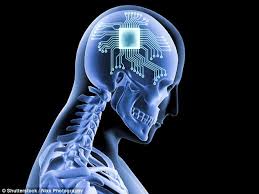
Breaking News
 BREAKING: Federal Agents Descend on Suspected Somali Fraud Sites in Minneapolis (VIDEO)
BREAKING: Federal Agents Descend on Suspected Somali Fraud Sites in Minneapolis (VIDEO)
 BREAKING: Federal Agents Descend on Suspected Somali Fraud Sites in Minneapolis (VIDEO)
BREAKING: Federal Agents Descend on Suspected Somali Fraud Sites in Minneapolis (VIDEO)
 Aargh! Letters of marque would unleash Blackbeard on the cartels
Aargh! Letters of marque would unleash Blackbeard on the cartels
 How a Barter System Could Sustain Communities During a Supply Chain Collapse
How a Barter System Could Sustain Communities During a Supply Chain Collapse
Top Tech News
 EngineAI T800: Born to Disrupt! #EngineAI #robotics #newtechnology #newproduct
EngineAI T800: Born to Disrupt! #EngineAI #robotics #newtechnology #newproduct
 This Silicon Anode Breakthrough Could Mark A Turning Point For EV Batteries [Update]
This Silicon Anode Breakthrough Could Mark A Turning Point For EV Batteries [Update]
 Travel gadget promises to dry and iron your clothes – totally hands-free
Travel gadget promises to dry and iron your clothes – totally hands-free
 Perfect Aircrete, Kitchen Ingredients.
Perfect Aircrete, Kitchen Ingredients.
 Futuristic pixel-raising display lets you feel what's onscreen
Futuristic pixel-raising display lets you feel what's onscreen
 Cutting-Edge Facility Generates Pure Water and Hydrogen Fuel from Seawater for Mere Pennies
Cutting-Edge Facility Generates Pure Water and Hydrogen Fuel from Seawater for Mere Pennies
 This tiny dev board is packed with features for ambitious makers
This tiny dev board is packed with features for ambitious makers
 Scientists Discover Gel to Regrow Tooth Enamel
Scientists Discover Gel to Regrow Tooth Enamel
 Vitamin C and Dandelion Root Killing Cancer Cells -- as Former CDC Director Calls for COVID-19...
Vitamin C and Dandelion Root Killing Cancer Cells -- as Former CDC Director Calls for COVID-19...
 Galactic Brain: US firm plans space-based data centers, power grid to challenge China
Galactic Brain: US firm plans space-based data centers, power grid to challenge China
Smart Phones, Smart Appliances…Smart People? Brain Chip Will Create Super-Intelligent Humans

What if you could have a chip installed in your brain that would increase your intelligence? Would you be interested?
While this kind of brain-computer interface technology might sound like something out of a dystopian science fiction novel, scientists are working hard to develop it, and it will likely be available in the near future.
This gives a whole new meaning to the phrase "smart person."
Scientists are currently developing smart chips for the human brain.
In an interview with CBS Chicago, Northwestern University neuroscientist and business professor Dr. Moran Cerf said he is working on a smart chip for the brain.
"In as little as five years, super smart people could be walking down the street; men and women who've paid to increase their intelligence," the report states.
Dr. Cerf, who said he is "collaborating with Silicon Valley big wigs he'd rather not name," explained that the smart chip would "Make it so that it has an internet connection and goes to Wikipedia, and when I think this particular thought, it gives me the answer."
"Everyone is spending a lot of time right now trying to find ways to get things into the brain without drilling a hole in your skull," Cerf said. "Can you eat something that will actually get to your brain? Can you eat things in parts that will assemble inside your head?" (source)
I don't know about you, but I find the idea this bit of information troubling: "Everyone is spending a lot of time trying to find new ways to get things into the brain."



